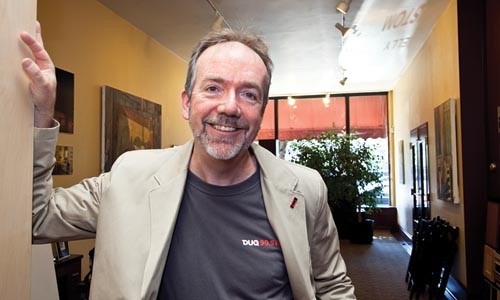When four area foundations purchased a 60-day option on WDUQ, Joe Kelly acknowledged that "I have no idea whether it's a good thing or a bad thing."
And now that the foundations have decided not to extend the option, he's still not sure. The central question raised during the past two months -- is WDUQ about the jazz, or the news, or both? -- is still unanswered.
Kelly chairs the advisory board for Pittsburgh Public Media, a group led by station staff that hopes to buy the public-radio station from Duquesne University, which has put it up for sale. For him, WDUQ is all about the jazz. That ingredient has given it an audience of 180,000 listeners -- larger than the city's other two public-radio stations, WQED-FM and WYEP. "Numbers don't lie," Kelly says. "We are the most successful public-radio station this city has ever known."
But it's not just a ratings game for Kelly, a jazz fan who published the monthly Pittsburgh Music Magazine in the late 1970s. "Jazz is the one and only American art form," he says. And "the history of jazz in Pittsburgh predates the Steelers. How a city with our jazz heritage can allow the elimination of jazz on the radio is unconscionable."
When foundations bought the option in early May, it froze Duquesne's ability to sell the license -- for which the school is reportedly seeking as much as $10 million.
But the foundations, Kelly soon learned, were less interested in jazz than in the fact that WDUQ is the city's source for National Public Radio.
"I was told that they're very supportive of the station," he says, but at the same time, "I was told that the foundation community is not necessarily interested in saving the station as it is."
In a post on the Pittsburgh Foundation's blog (blog.pittsburghfoundation.org), Executive Director Grant Oliphant acknowledged that the foundations' interest was "particularly tied to the expanding role of public radio in providing essential news and information." [See "Wealth of News," page 17]. And the foundations hadn't figured out "[w]hat that would mean for jazz ... and whether it's the best use of philanthropic dollars."
The WDUQ option "wasn't about how to save the station" in the sense of keeping all the existing programming, Oliphant tells City Paper. "What was appealing about the station is that public radio remains one of the strongest areas of media right now. The listenership is educated and involved in community decision-making."
Oliphant notes that "we heard a lot from jazz fans" on the blog. Still, he says, "There wasn't a groundswell" of such sentiment -- only 30 people posted responses when Oliphant asked for comments. And while many posters were diehard jazz fans, one did characterize its playlist as "elevator music."
That said, the foundations' option probably did no harm to PPM's efforts: Kelly credits it with allowing for more public dialogue.
"I would speculate they are no weaker or stronger," says Pittsburgh Filmmakers Executive Director Charlie Humphrey, who acted as a public liaison during the option period. The 60-day period was simply not enough time for the foundations to devise a viable plan, and so the Foundations let the option expire, Humphrey says. Money was a hurdle too, he adds: "You gotta remember what the economic climate is like -- it's terrible."
The foundations might still be willing to help out a bidder, he adds: "I think they're willing to look at a strong strategy."
Kelly and the PPM management team could use all the help they can get. On-air personnel are restricted from pressing the PPM cause on air, or using the station's fundraising list. Kelly allows that the arrangement is not uncommon in such transactions, but says, "It's sort of like being thrown in to a boxing match with your hands tied behind your back."
On-air personnel aren't leaving the ring, however. At a June 1 outdoor jazz concert Downtown, veteran DJ Bob Studebaker invited members of the crowd to talk with him about the PPM bid during intermission. In a conversation with City Paper, Studebaker notes that a station with 180,000 listeners must be doing something right: "You've got an audience that's already listening," he says. Changing the station's programming is "really going to erode the willingness of people to support the station."
Studebaker allowed that while he was barred from mentioning the sale on air, he wasn't sure what else he could or couldn't say.
"I just don't know," he said. "But somebody has to talk. ... Where it's all going to go, I don't know. It's damn interesting to be in the middle of it, though."















